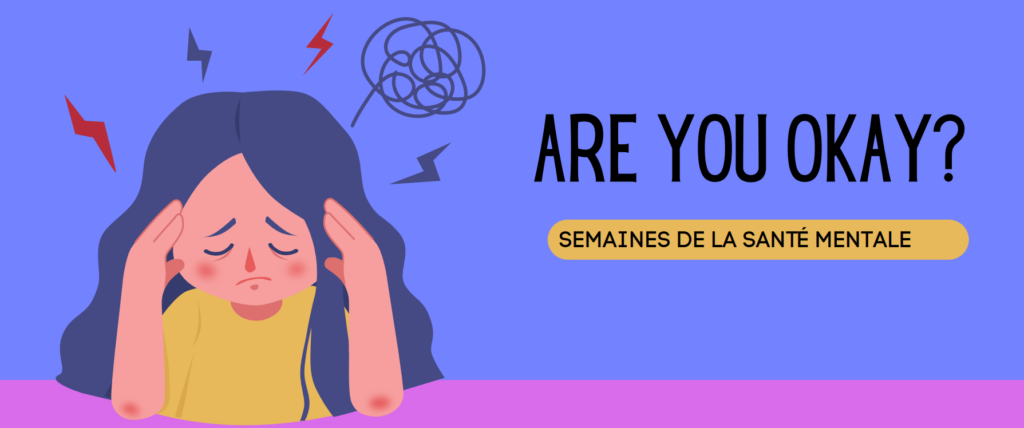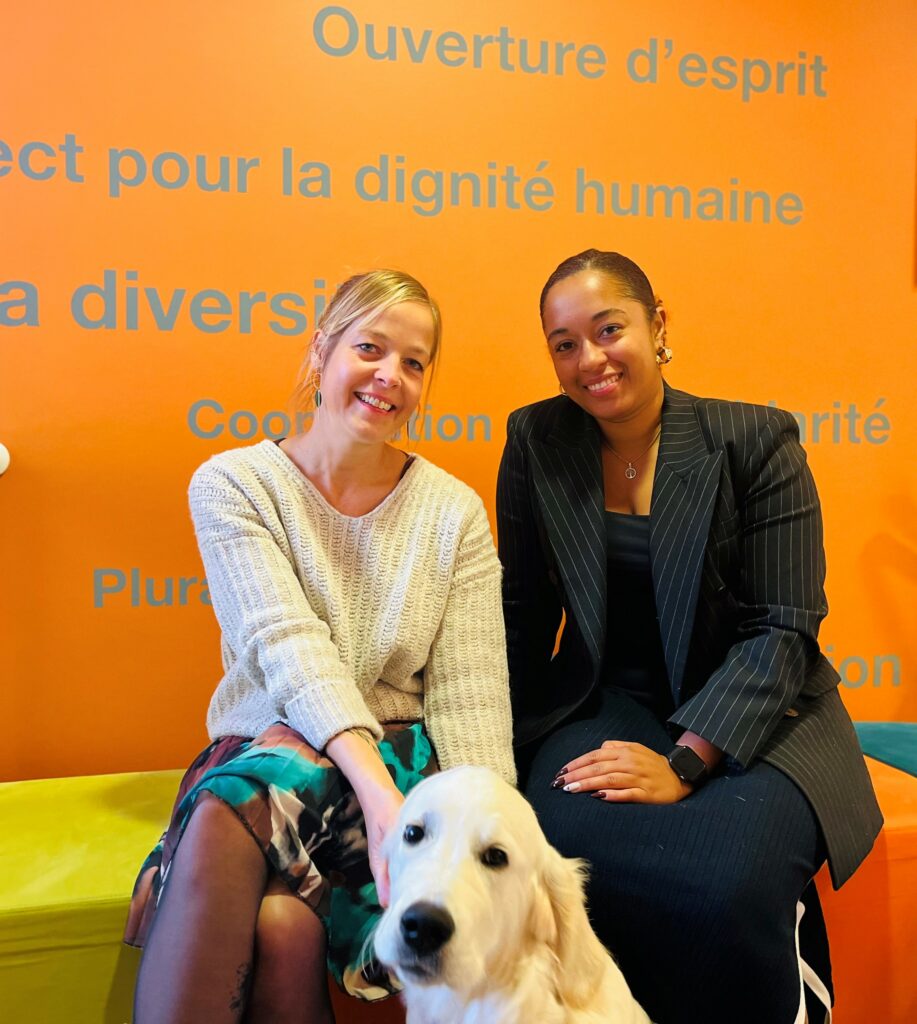10 October 2024

To mark Mental Health Weeks and World Mental Health Day, we spoke to Christiane Weintzen, a psychologist, psychotherapist for children and adolescents and manager in our Psy-Jeunes service, and Stéphanie Silva, psychologist and head of our PsyUp mobile service, about young people’s mental health.
Stéphanie Silva: The mental health of young people is an important issue. Young people face many challenges, whether at school, in sport or on social media. We often see them diagnosed with anxiety disorders, depression, eating disorders and even burnout. The pressure at school and the constant presence online exacerbate the problem. Social media play an important role: young people constantly compare themselves to others and believe that the idealised images on the web are reality. This leads to low self-esteem and social withdrawal.
Christiane Weinzten: On the one hand, the Internet offers many opportunities, but it can also be harmful. Young people are often online without guidance and are influenced by unrealistic ideals and misinformation. Girls in particular seek to assert themselves on social media and often experience disappointment when they are criticised or do not match the ideal image generated by countless filters. The pressure to be perfect is also increasing among parents. This is particularly true of mothers, who feel they must always be calm, patient, pretty and successful – which can lead to family tensions and even divorce.
Christiane Weintzen: At the Psy-Jeunes service, we offer psychological counselling and/or psychotherapy for young people aged 0 to 27. If the problems are not so serious, we support the young people and their parents in rediscovering their resources or finding new ones to cope with difficult life situations. In more severe cases, such as trauma or intense symptoms, we offer psychotherapy. This involves working through stressful experiences in order to enable healing. We use various therapeutic methods, and we have recently been joined by two therapy dogs to support the process. Unfortunately, the waiting time is currently eight months.
Stéphanie Silva: The PsyUp service does not offer psychotherapy, but supports teenagers and young adults between the ages of 12 and 26 in acute stress situations – for example in youth centres, in Hariko houses or at the Red Cross Youth. We help young people to activate their own resources by giving them tools such as breathing techniques, mindfulness exercises or diary writing. School stress, family conflicts or the transition to secondary school or working life are often the issues that weigh on young people. If necessary, we refer them to other external services and support them to help them get started.
Christiane Weintzen: The Red Cross has a wide range of support services for young people. We not only offer psychological support, but also leisure activities such as holiday camps run by the Red Cross Youth or creative activities in youth centres and Hariko. It is important that young people have a place where they can express themselves freely and where their needs are taken seriously. There are also many support services for families, such as Familljenhëllef, ORIBeho or Families First, which help to stabilise the family environment. We also have services that support foster families and adoptive parents.
Stéphanie Silva: In the youth centres, young people can become active themselves and help shape activities. This boosts their self-confidence and helps them to discover their abilities. Many young people often don’t know what they are good at, and through such activities they can recognise and develop their strengths. We want to offer them a safe environment in which they can feel comfortable and build confidence.
Plus d’infos sur nos services Psy-Jeunes & PsyUp :
Psy-Jeunes – Luxembourg Red Cross, Mënschen hëllefen (croix-rouge.lu)
PSYUP – Luxembourg Red Cross, Mënschen hëllefen (croix-rouge.lu)

Christiane Weintzen (l.) & Stéphanie Silva & Therapy dog Benjo